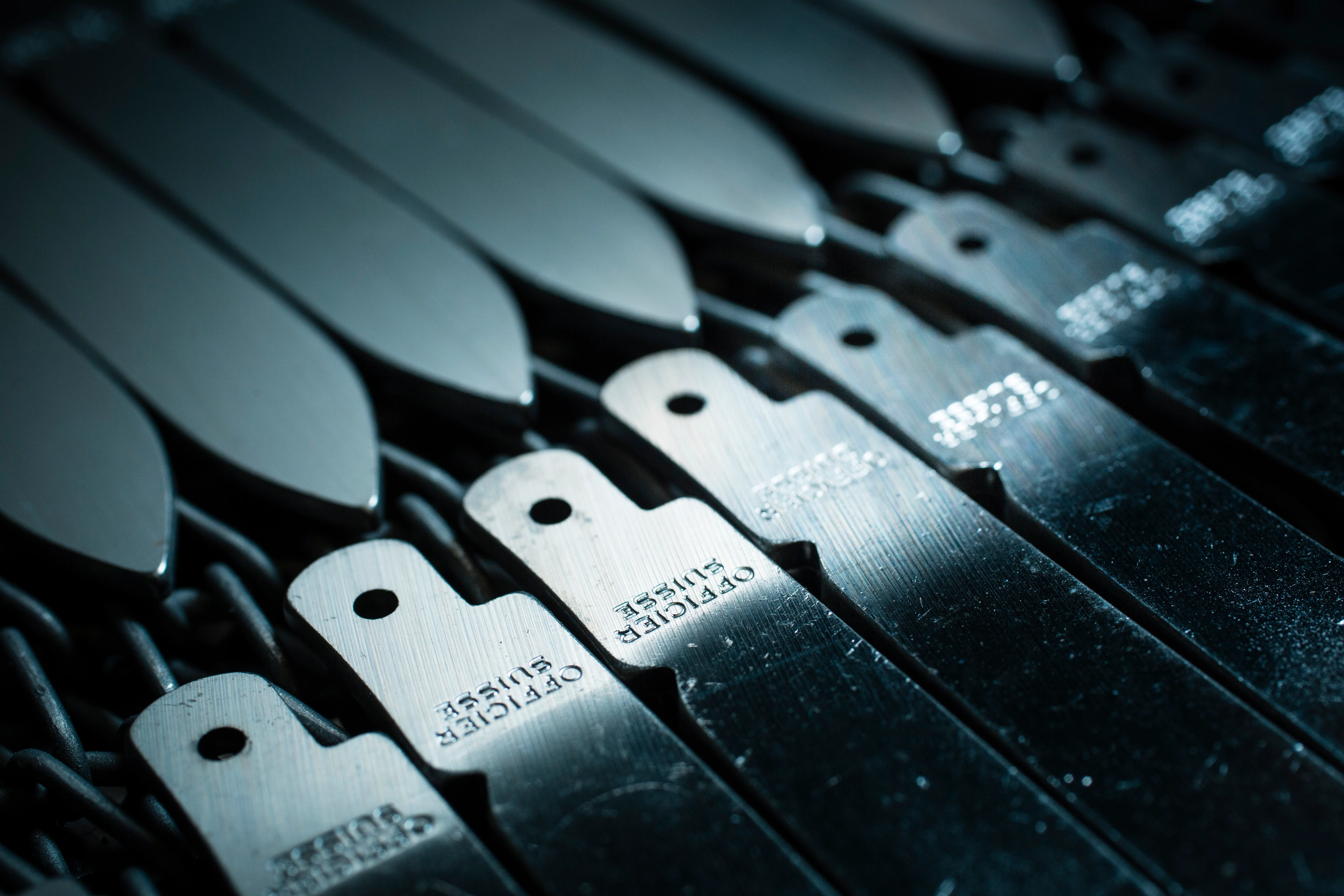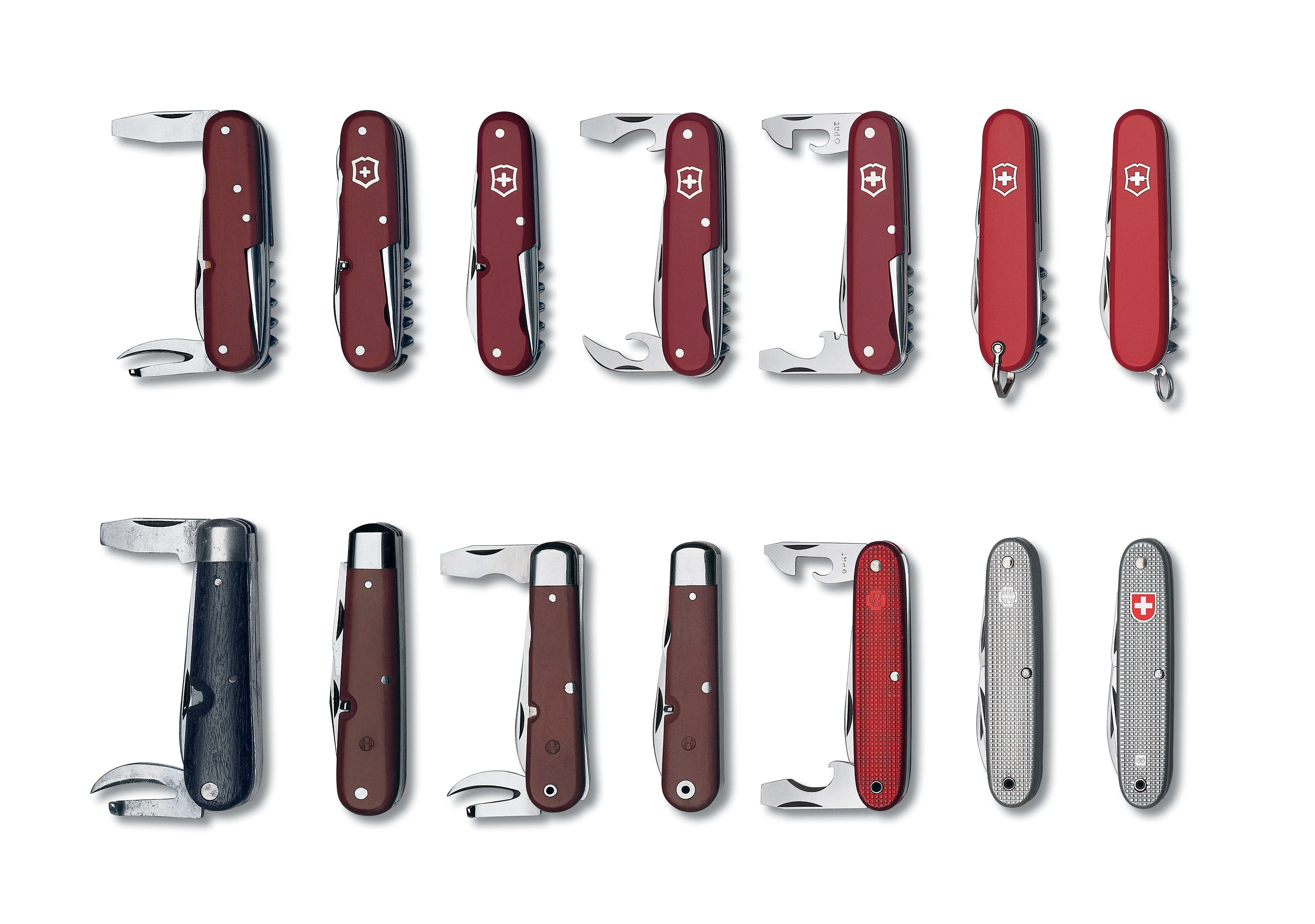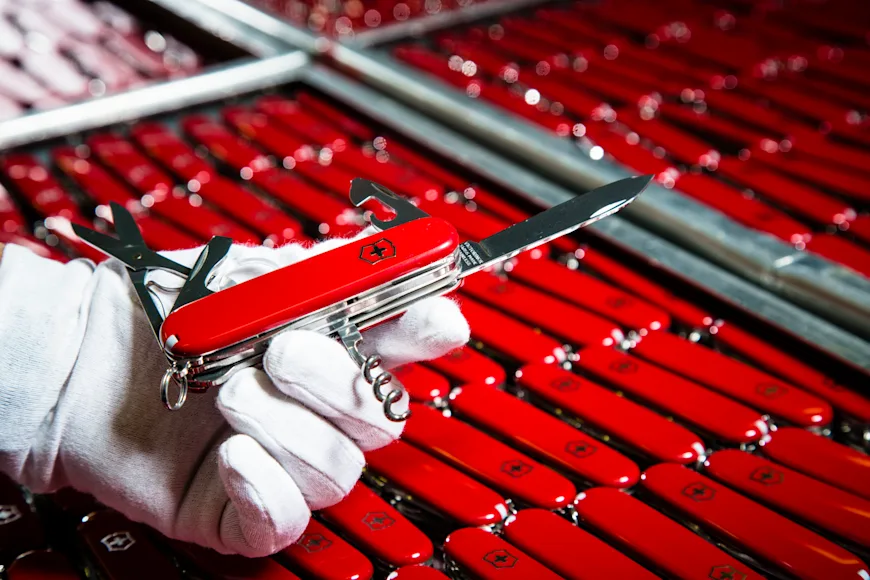This story was produced in partnership with Victorinox.
Victorinox: The Brand
Where did Victorinox begin?
In 1884, Karl Elsener I opened his cutler’s workshop in Ibach, Schwyz – where Victorinox’s headquarters still stand today. At a time when Switzerland was among the poorest nations in Europe, Elsener worked to combat poverty and unemployment by creating jobs and opportunities for providing skills and training to the local community. His founding of the Swiss Master Cutlers Association helped deliver the company’s first supply of Soldier’s Knives to the Swiss Army in 1891. Six years later, he developed the Swiss Officer’s and Sports Knife, now known worldwide as the Swiss Army Knife™ – a global symbol of precision, reliability, and multifunctionality. Swiss values of precision, functionality, and understated design became the foundation of Victorinox. Every product embodies the country’s commitment to excellence, reliability, and craftsmanship. From the first workshop in Schwyz to today’s state-of-the-art facilities, Victorinox continues to uphold the principles of quality and integrity that define Swiss engineering.

What does the name Victorinox mean and represent?
Victorinox is the combination of two words “Inox” and “Victoria.” Inox is the term for stainless steel, and Victoria is Karl Elsener’s mother’s name. She supported Karl with his ambitions wholeheartedly and he wanted to show his appreciation by naming the company after her. It honors family, resilience, and innovation – values that remain central to Victorinox’s identity today.
What is the brand’s mission?
At Victorinox, our mission is to ensure our customers are best prepared for everyday challenges by equipping them with carefully thought-out solutions that serve their purpose expertly. This belief – that being best prepared makes life better – is deeply Swiss, reflecting a culture built on precision, reliability, and balance. We pursue excellence in everything we do and harness our unique Swiss DNA, founded on integrity and family values alongside our rich heritage of craftsmanship and innovation, with a commitment to quality, reliability, and authenticity.
Victorinox: The Products
Where are your knives made?
Victorinox’s own factory in Ibach is in the heart of Switzerland. Our factory remains at the same site where our founder created the first ever Swiss Army Knife™ and continues to serve as both our headquarters and the beating heart of our operations today. Each knife crafted there upholds the standards of Swiss quality and precision that the world has come to trust.

How did the Swiss Army Knife become so iconic? When was it first developed and how was the idea come up with?
The first Swiss Army Knife™ created in 1897 was developed to meet the needs of the Swiss Army for a versatile tool that soldiers could carry daily and was known as the Swiss Officer’s & Sports Knife. This invention reflected the Swiss spirit of practicality and innovation. The discovery of stainless steel in 1921 and later technological advances, such as the commissioning of the world’s first all-electric hardening plant by Victorinox, reinforced the company’s reputation for excellence. During WWII, the US Army ordered large quantities of Victorinox pocket knives for their post exchange stores. The knife’s reputation for reliability and versatility grew as American soldiers stationed in Europe brought them home as souvenirs and gifts. From then onwards, the Swiss Army Knife™ became recognized as a global design icon, featured in MoMA in New York since 1977 and the Design Museum in London. In 1978, NASA ordered 50 Master Craftsman knives, and since then, the Swiss Army Knife™ became recognized for its use at home, outdoors and even in outer space. It remains a symbol of Swiss ingenuity, dependability, and timeless design.
What makes Victorinox knives unique compared to others?
Victorinox knives distinguish themselves through a combination of exceptional quality, innovative design, and a rich heritage of Swiss craftsmanship. Victorinox is the largest knife manufacturer in Europe and continues to harness its heritage and values to drive itself forward. We listen to our consumers’ needs and identify key areas with potential for innovation including the creation of everyday tools for the day to day, specialized functions for professional users and new products for outdoor and sports usage Durable materials and the efficient use of resources remain at the core of our operations. Victorinox continues to be proudly family-run, now led by the fourth generation of the Elsener family. This continuity ensures that the founding principles of integrity, responsibility, and craftsmanship remain deeply embedded in the company’s culture. As a family business, Victorinox takes a long-term view, investing in innovation, sustainable use of resources, and generous warranties and after-sales care, all hallmarks of Swiss reliability and care.
What are the core materials used in your knives?
Our most important raw material used across all our knives is high-quality European stainless steel, of which 85% is recycled. For our scales, Cellidor, an organic, thermoplastic cellulose ester that incorporates a high proportion of renewable natural cellulose material, is one of the core materials we use due to its lightweight and wear-resistant qualities. It incorporates a high proportion of renewable natural cellulose material and unlike traditional plastics, it is only partially dependent on fossil fuels.
What are the three most popular or favorite Victorinox knives?
We offer a wide range of pocket knives and tools, each designed for different needs and purposes. Our top sellers and fan favorites really depend on how they’re being used, so it’s tough to narrow it down to just three.
That said, when it comes to both everyday practicality and outdoor adventures, some of the most popular models include the Huntsman, Fieldmaster, and Tinker. The Huntsman and Fieldmaster are trusted by outdoor enthusiasts for their versatility, durability, and well-balanced toolsets—both offering 15 functions without unnecessary bulk. The Huntsman includes a corkscrew and even allows for a clever mini-screwdriver hack, while the Fieldmaster swaps that out for a Phillips head screwdriver, ideal for quick adjustments and on-the-go fixes.
For daily use, the Tinker stands out as a slim, lightweight companion built for work, travel, and everyday tasks. Its practical design and compact size make it ideal for those who prefer a tool that fits seamlessly into their pocket while still handling small repairs and quick fixes with ease.
Whether you’re at home, on the job, or exploring outdoors, these models reflect the true Swiss spirit of readiness, reliability, and craftsmanship that defines Victorinox.

